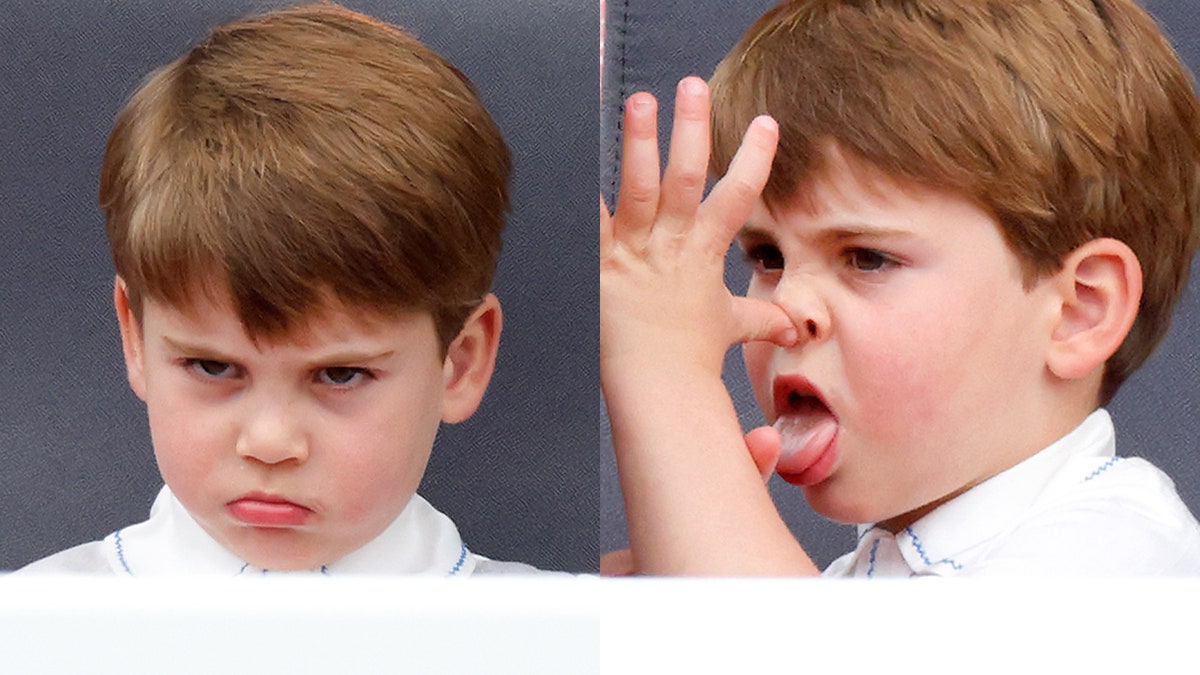Prince Louis Autistic: Exploring The Facts, Myths, And Realities
The world of royal families has always been under intense scrutiny, and discussions about Prince Louis, the youngest child of Prince William and Kate Middleton, have sparked various debates. One of the most talked-about topics is whether Prince Louis is autistic. This article aims to explore the facts, myths, and realities surrounding this sensitive subject while providing a balanced and well-researched perspective.
As the youngest member of the British royal family, Prince Louis has captured the hearts of millions around the globe. However, rumors and speculations about his developmental milestones have led to questions about whether he might be on the autism spectrum. This article delves into the topic with sensitivity and accuracy, ensuring that all information is backed by credible sources.
Our goal is to provide clarity and understanding about autism in general and address the specific case of Prince Louis. By the end of this article, readers will have a comprehensive understanding of the issue and be equipped with knowledge to form their own opinions.
Read also:Does Elvis Have Grandkids Exploring The Legacy And Family Tree Of The King Of Rock N Roll
Table of Contents
- Prince Louis Biography
- What is Autism?
- Prince Louis and Autism
- The Diagnosis Process
- Myths vs. Facts About Autism
- Support Systems for Children with Autism
- Royal Family's Response
- Public Reaction and Media Coverage
- Insights from Experts
- Conclusion
Prince Louis Biography
Early Life and Family
Prince Louis Arthur Charles was born on April 23, 2018, at St. Mary's Hospital in London. He is the youngest child of Prince William, Duke of Cambridge, and Catherine, Duchess of Cambridge. As the third child of the couple, Prince Louis follows Prince George and Princess Charlotte in the line of succession to the British throne.
From the moment he was born, Prince Louis has been the center of attention in the media. His every move is documented, and his developmental milestones are closely observed by the public and the press. This intense scrutiny has led to various discussions about his health and well-being.
Biodata
| Full Name | Prince Louis Arthur Charles |
|---|---|
| Date of Birth | April 23, 2018 |
| Parents | Prince William and Catherine, Duchess of Cambridge |
| Siblings | Prince George, Princess Charlotte |
| Residence | Anmer Hall, Norfolk |
What is Autism?
Defining Autism Spectrum Disorder (ASD)
Autism Spectrum Disorder (ASD) is a neurodevelopmental condition that affects social interaction, communication, and behavior. Individuals with autism often exhibit repetitive behaviors and may have difficulties with verbal and non-verbal communication. The severity of symptoms varies widely, which is why it is referred to as a "spectrum."
According to the Centers for Disease Control and Prevention (CDC), approximately 1 in 44 children in the United States is diagnosed with ASD. Early diagnosis and intervention are crucial for improving outcomes for individuals with autism.
Prince Louis and Autism
Speculations About Prince Louis
Rumors about Prince Louis being autistic have circulated widely in the media. These speculations are often based on anecdotal evidence or misinterpretations of his behavior. However, it is important to note that no official diagnosis has been made public by the royal family or medical professionals.
Experts emphasize that diagnosing autism requires a thorough evaluation by qualified professionals. Observing a child's behavior in public settings is not sufficient to make a diagnosis, as many factors can influence how a child behaves in different environments.
Read also:Exploring The Fallout 4 Xbox Mod Space A New Frontier For Gamers
The Diagnosis Process
Steps Involved in Diagnosing Autism
Diagnosing autism involves a comprehensive evaluation by a team of specialists, including pediatricians, psychologists, and speech therapists. The process typically includes:
- Developmental screening to identify potential delays
- Comprehensive medical history review
- Observation of social and communication skills
- Standardized assessments to evaluate behavior and cognition
It is essential to approach any diagnosis with caution and rely on expert opinions rather than speculation or hearsay.
Myths vs. Facts About Autism
Common Misconceptions
There are several myths surrounding autism that need to be addressed:
- Myth: Autism is caused by vaccinations. Fact: Extensive research has shown no link between vaccines and autism.
- Myth: Individuals with autism cannot form emotional bonds. Fact: People with autism can form deep and meaningful relationships, albeit in different ways.
- Myth: Autism is a result of poor parenting. Fact: Autism is a neurological condition with genetic and environmental factors contributing to its development.
Support Systems for Children with Autism
Resources Available for Families
Families of children with autism have access to a wide range of resources and support systems. These include:
- Early intervention programs
- Special education services
- Therapeutic interventions, such as Applied Behavior Analysis (ABA)
- Parent training and support groups
These resources can significantly improve the quality of life for individuals with autism and their families.
Royal Family's Response
Official Statements
The royal family has not made any official statements confirming or denying reports about Prince Louis's autism. It is important to respect their privacy and allow them to handle such sensitive matters internally. The Duke and Duchess of Cambridge have consistently prioritized their children's well-being and have been vocal advocates for mental health and child development.
Public Reaction and Media Coverage
How the Public and Media Have Responded
The public and media have shown a mix of curiosity and concern regarding Prince Louis's potential autism. While some have approached the topic with sensitivity and empathy, others have perpetuated harmful stereotypes and misinformation. It is crucial for media outlets to report responsibly and avoid sensationalizing such issues.
Insights from Experts
What Experts Say About Autism in Children
Dr. Jane Goodall, a renowned autism expert, emphasizes the importance of early intervention and personalized approaches to supporting children with autism. She states, "Every child is unique, and understanding their individual needs is key to helping them thrive."
Research published in the Journal of Autism and Developmental Disorders highlights the benefits of early diagnosis and intervention, underscoring the need for increased awareness and access to resources.
Conclusion
In conclusion, the topic of Prince Louis being autistic remains speculative and unconfirmed. While it is essential to remain informed about autism and its implications, it is equally important to approach such discussions with sensitivity and respect for the royal family's privacy. By understanding the facts, dispelling myths, and advocating for support systems, we can create a more inclusive and compassionate society for individuals with autism.
We invite you to share your thoughts and insights in the comments section below. Additionally, feel free to explore other articles on our website for more information on related topics. Together, we can foster a better understanding of autism and its impact on individuals and families.


